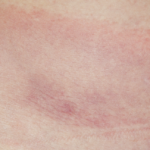Ms. Corinth readjusted her glasses and considered my opinion. She carefully placed the notebook on the table and smoothed the edge of her skirt. “Then why do I feel better when I’m on IV antibiotics? Is that a treatment for psoriatic arthritis?” she asked finally.
“There are many reasons why people feel better with a treatment they believe in. In fact, in several scientific trials in chronic Lyme disease, when IV ceftriaxone was compared with an IV saline placebo, both groups improved. The problem is, the placebo group improved as much as the antibiotic group. But remember, I’m saying symptoms. Your knee swelling, that’s not a symptom like fatigue or difficulty with concentration, it’s a sign, a measurable objective finding. I don’t see where that has improved with long-term treatment with antibiotics. Has it?”
She glumly looked at her knee. “I’m not sure. Sometimes I think it’s getting better.”
“Right. Only it’s not. Look at how much you’ve declined during the past two years. A year ago, you didn’t need a cane to walk. A year ago, you were working. If you allow me to treat you for psoriatic arthritis, we can both see if the swelling responds to changes in medical management. I can re-aspirate it periodically and assess if the number of inflammatory cells in the fluid is diminishing.”
She rubbed her knee and flexed it slowly back and forth. “What kind of medication would you suggest?”
“Okay. So this is what I think we should do. I want to begin a weekly medication called methotrexate. It’s an older drug; it’s been around more than 40 years, so we know a lot about how it works, the risks, the benefits. It’s usually very effective for psoriatic arthritis and …” As I talked, I noticed she was typing in information on her iPhone. “Although we need to monitor it for side effects with blood counts and liver testing, the knee swelling should respond …”
“It says here,” Mrs. Corinth interrupted me. “It says here that methotrexate is a drug that is used in chemotherapy. It’s an immunosuppressant, a cancer drug.”
“That’s true.” The tremor in my finger was back. I swallowed and fought back the urge to escalate the conversation. But from the tone in her voice, I could tell we were done. She has no faith in my assessment or recommendations.
I could emphasize that the dose of methotrexate we use in inflammatory arthritis is about 2% the dose that is used in chemotherapy. I could say that in low doses, it is not an immunosuppressant but rather an anti-inflammatory medication. I could say that in the practice of rheumatology, methotrexate is a bedrock of treatment, the benefits far outweighing the risks. Some of our patients have been safely on methotrexate for more than two decades. If methotrexate fails, a new class of medications, biologic response modifiers, such as etanercept and infliximab, are often remarkably effective in the management of psoriatic arthritis.


